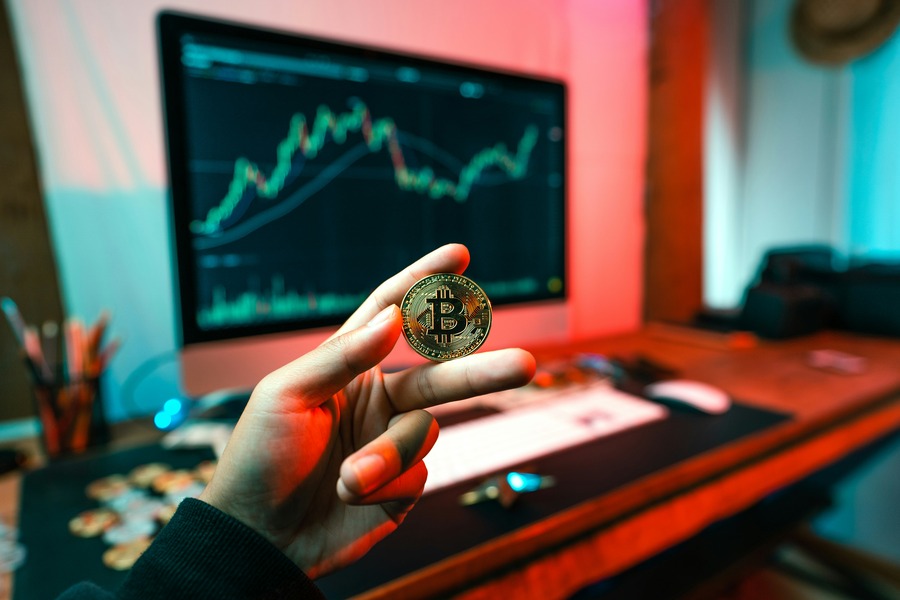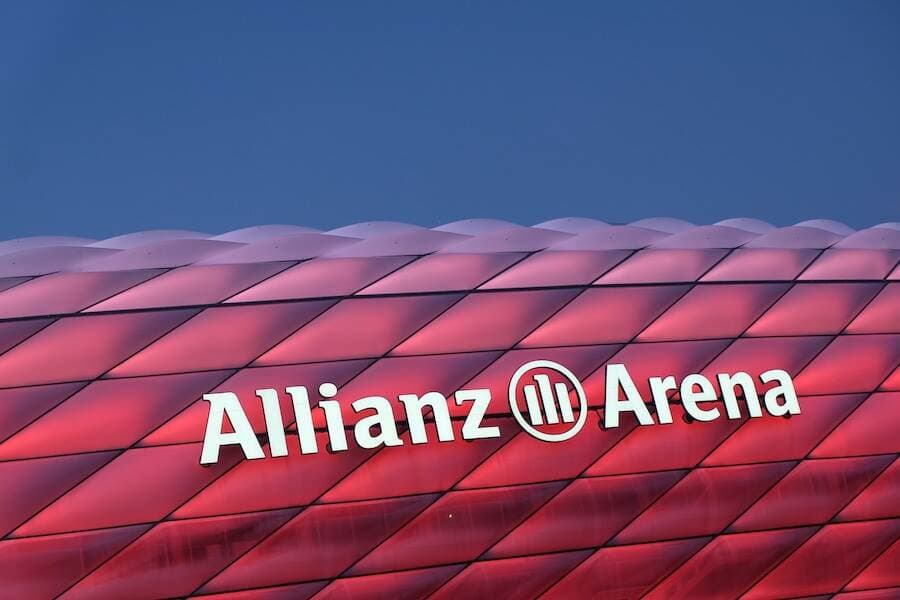What is DeFi (Decentralized Finance)?
- 29 Aug 2024

Decentralized Finance, commonly known as DeFi, is a rapidly growing sector within the cryptocurrency industry that aims to revolutionize traditional financial systems. Unlike conventional finance, DeFi operates without intermediaries such as banks, brokerages, or insurance companies, instead leveraging blockchain technology and smart contracts to create an open, transparent, and accessible financial ecosystem.
The Core Principles of DeFi
DeFi is built on several key principles that distinguish it from traditional financial systems:
1. Decentralization
At its core, DeFi removes the need for centralized institutions by using blockchain networks, primarily Ethereum, to execute and verify transactions. This decentralization ensures that no single entity has control over the system, promoting greater security, transparency, and fairness.
Other blockchains, such as Binance Smart Chain (BSC), Solana, and Avalanche, are also gaining traction in the DeFi space, offering unique benefits like faster transaction speeds and lower fees.
2. Transparency
All transactions and smart contracts on DeFi platforms are recorded on public blockchains. This transparency allows anyone to audit the system, ensuring that operations are conducted fairly and without manipulation. Users can verify all activities themselves, reducing the reliance on third-party auditors.
For example, decentralized applications (dApps) like Etherscan allow users to track transactions and smart contracts on the Ethereum blockchain in real time.
3. Accessibility
DeFi is accessible to anyone with an internet connection. Unlike traditional finance, which may require paperwork, credit checks, or a history with a financial institution, DeFi platforms are open to users around the world, regardless of their location or financial background. This inclusivity is particularly impactful in underbanked regions, where access to traditional financial services is limited.
4. Programmability
Smart contracts, which are self-executing contracts with the terms directly written into code, are the backbone of DeFi. These contracts automate processes such as lending, borrowing, and trading, reducing the need for human intermediaries and enabling complex financial operations to occur without delay.
For example, Aave's flash loans enable users to borrow and repay funds within a single transaction without collateral—a concept unimaginable in traditional finance.

Popular DeFi Platforms
Several platforms and protocols have emerged as leaders in the DeFi space, offering a wide range of financial services traditionally provided by banks and financial institutions. Some of the most popular DeFi platforms include:
1. Uniswap
Uniswap is a decentralized exchange (DEX) that allows users to trade cryptocurrencies directly from their wallets. It uses an automated market-making (AMM) system, where liquidity providers supply pools with tokens, earning fees from trades executed on the platform. Uniswap has become a cornerstone of the DeFi ecosystem, offering a user-friendly interface and high liquidity. Its success has inspired competitors like SushiSwap, which adds unique features such as token rewards.
2. Aave
Aave is a decentralized lending and borrowing platform where users can earn interest on their cryptocurrency deposits or take out loans by providing collateral. Aave introduced the concept of "flash loans," which are loans that must be borrowed and repaid within a single transaction. These innovative features have made Aave one of the most widely used DeFi protocols. Aave’s governance token, AAVE, empowers holders to participate in decision-making.
3. MakerDAO
MakerDAO is a decentralized autonomous organization that allows users to create a stablecoin called DAI, which is pegged to the US dollar. Users can generate DAI by depositing collateral, such as Ethereum, into a smart contract. MakerDAO’s stability mechanism and decentralized governance have made DAI one of the most trusted stablecoins in the DeFi space. This trust is further enhanced by its open-source architecture, which ensures transparency.
4. Compound
Compound is another popular DeFi platform that focuses on decentralized lending and borrowing. Users can supply assets to liquidity pools and earn interest, while borrowers can take out loans by providing over-collateralized positions. Compound’s governance token, COMP, allows users to participate in decision-making processes on the platform, making it a pioneer in decentralized governance.
Key DeFi Concepts and Use Cases
DeFi introduces several innovative concepts and use cases that differentiate it from traditional financial systems:
1. Yield Farming
Yield farming, also known as liquidity mining, involves providing liquidity to DeFi protocols in exchange for rewards, typically in the form of the platform’s native tokens. Yield farmers strategically move assets across different platforms to maximize returns, taking advantage of high interest rates or token rewards. Protocols like Yearn.Finance simplify this process by automating yield optimization.
2. Liquidity Pools
Liquidity pools are a core component of DeFi platforms like Uniswap and SushiSwap. These pools are collections of tokens locked in smart contracts, which facilitate trading on decentralized exchanges. Liquidity providers earn fees generated by trades within the pool, and in some cases, additional rewards. For example, Balancer allows users to create custom pools with multiple tokens, offering more flexibility.
3. Decentralized Exchanges (DEXs)
DEXs allow users to trade cryptocurrencies directly without relying on centralized exchanges. This reduces the risks associated with centralized control, such as hacking or censorship, while enabling peer-to-peer trading. DEXs like Uniswap, PancakeSwap, and Curve Finance have gained immense popularity due to their simplicity and security.
4. Stablecoins
Stablecoins are cryptocurrencies pegged to traditional assets like the US dollar, aiming to reduce the volatility commonly associated with cryptocurrencies. DAI by MakerDAO is a prime example of a decentralized stablecoin, providing stability and predictability in an otherwise volatile market. Other notable stablecoins include USDT (Tether) and USDC (USD Coin), both widely used across DeFi platforms.
5. Decentralized Insurance
DeFi has also given rise to decentralized insurance platforms, such as Nexus Mutual, which offer coverage against risks like smart contract failures. These platforms pool funds from users to provide insurance, governed by smart contracts that automatically handle claims. Another example is Etherisc, which provides flight delay insurance powered by blockchain.
6. Blockchain Interoperability
As the DeFi ecosystem expands, the need for cross-chain compatibility becomes more pressing. Projects like Polkadot and Cosmos are developing technologies that enable different blockchains to communicate and share data seamlessly, fostering a more interconnected and versatile DeFi landscape. This interoperability allows users to leverage the strengths of multiple blockchain platforms.

The Future of DeFi
The DeFi sector is evolving rapidly, with new projects and innovations constantly emerging. As technology advances and more people become aware of the benefits of decentralized finance, the DeFi ecosystem is likely to expand further. This growth may include increased interoperability between blockchains, enhanced user experiences, and the development of more complex financial instruments.
1. Institutional Adoption
As DeFi matures, institutional investors are beginning to recognize its potential. Financial giants like JPMorgan and Goldman Sachs are exploring blockchain technology and DeFi-inspired solutions, signaling a shift toward mainstream acceptance.
2. New Financial Instruments
DeFi’s programmability opens the door to innovative financial products like tokenized stocks, derivatives, and prediction markets. Platforms like Synthetix are already enabling users to trade synthetic assets that mimic real-world stocks and commodities.
How to Get Started with DeFi
For those interested in exploring DeFi, here are some steps to get started:
- Educate Yourself: Understanding blockchain, cryptocurrency, and decentralized finance is key. Check out Crypto for Beginners: A Complete Guide for a foundational overview. You can also explore resources like DeFi Pulse to monitor the DeFi ecosystem.
- Choose a Wallet: Use a cryptocurrency wallet like MetaMask or Trust Wallet that supports dApps. If you're new to crypto, our guide on How to Safely Store Your Cryptocurrency can help you secure your assets.
- Explore Platforms: Begin with beginner-friendly DeFi platforms like Uniswap or Aave to familiarize yourself with the basics. If you’re unsure how to acquire cryptocurrency to start, our guide on How to Buy Your First Cryptocurrency is a great place to start.
- Start Small: Experiment with small amounts of cryptocurrency to minimize risks. You can check our List with Exchanges to find reputable platforms for buying and trading crypto.
- Stay Informed: Follow industry news, join online forums, and participate in communities like Reddit’s r/DeFi to keep up with the latest developments.
Conclusion
Decentralized Finance (DeFi) represents a transformative shift in how financial services are delivered. By removing intermediaries and leveraging blockchain technology, DeFi offers a more accessible, transparent, and efficient financial ecosystem. While challenges such as scalability, regulation, and security remain, the ongoing innovation within DeFi is paving the way for a more inclusive and democratized financial future.







